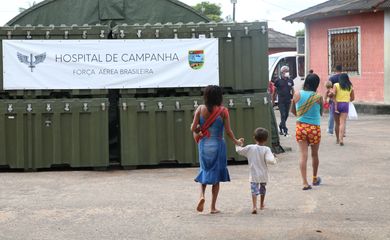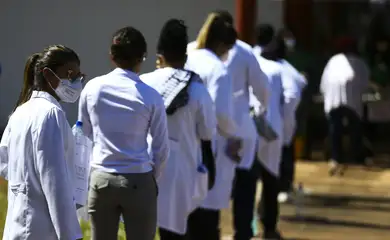Brazil opens 5,970 vacancies for doctors under Mais Médicos program

On Monday (May 22), Brazil's Ministry of Health announced a public tender offering 5,970 vacancies for medics under the Mais Médicos ("More Doctors") program. These positions are available in 1,994 municipalities across the country.

Registration for the program will open next Friday (26), with priority given to Brazilian doctors who have graduated in Brazil.
Brazilians who have obtained their degrees abroad or foreign doctors are also eligible to participate. They will be assigned to positions that have not been filled by locally registered doctors.
Registration will remain open until May 31, and according to the ministry's forecast, professionals are expected to start their work by the end of June.
When allocating doctors, criteria such as degrees, training, and previous experience in the project will be considered. In the event of a tie, priority will be given to candidates based on proximity of residence to their assigned Mais Médicos location, followed by those with the longest graduation history and the oldest candidates.
All participants in the program are eligible to receive incentives for their continued participation, with higher percentages allocated to those assigned to regions of extreme poverty and vulnerability, as stated in the public notice.
Legal Amazon
The Ministry reports that over 8,000 doctors are currently engaged in the program, and the public tender is now open to fill vacancies that have remained unfilled over the past four years. Additionally, there are one thousand new vacancies specifically designated for the Legal Amazon region.
Approximately 45 percent of the vacancies are located in regions characterized by social vulnerability and historical challenges in attracting healthcare professionals.
The ministry informs that the federal government aims to have 28,000 professionals from the Mais Médicos program serving nationwide by the end of the year, with a particular focus on areas experiencing extreme poverty. This initiative aims to provide medical care in primary care stations—considered the gateway to the country’s public healthcare network, the SUS, ensuring access to healthcare for over 96 million Brazilians.





